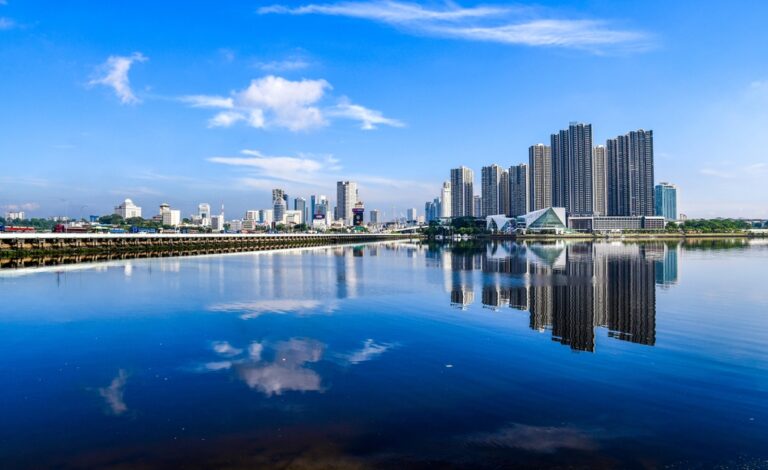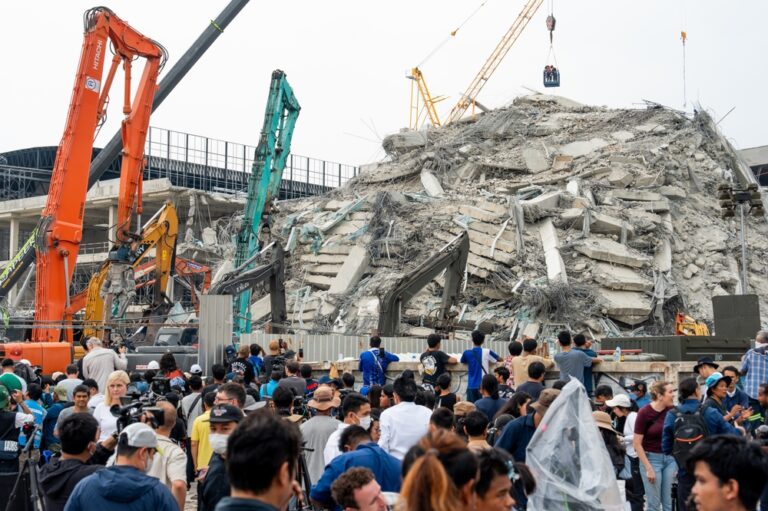Sustainable growth pathways emerge for Vietnam real estate
Experts stress infrastructure, transparency, and inclusive policies

Vietnam’s property market is entering a pivotal phase. After a two-year slowdown, the sector has regained momentum, driven by surging foreign investment, evolving government policies, and infrastructure initiatives that are reshaping development opportunities across the country. While these factors signal a promising future, industry leaders stress the importance of balancing rapid growth with sustainability and inclusivity to ensure long-term resilience.
According to VnExpress, foreign investment in Vietnam’s property market doubled recently, with rising commitments from international stakeholders seeking residential, industrial, and hospitality opportunities. This renewed interest has coincided with policy changes such as provincial mergers, which The Investor reported are unlocking new opportunities for development and spurring urban expansion into previously untapped regions.
In major hubs such as Ho Chi Minh City, the demand-supply imbalance remains a pressing challenge. VietnamPlus highlighted the city’s recent approval of 17 new housing projects available for foreign ownership, a move aimed at addressing pent-up demand while attracting more overseas buyers. At the same time, investment interest is spilling over into surrounding provinces like Long An, Dong Nai, and Binh Duong, where industrial parks, residential zones, and leisure developments are taking shape.
Infrastructure as a foundation
Members of the Judging Panel of the PropertyGuru Vietnam Property Awards emphasised that infrastructure remains the determining factor in ensuring this growth is sustainable.
Mauro Gasparotti, Senior Director and Head of Southeast Asia Hotel Advisory at Savills Hotels, noted:
“After two years of slowdown, Vietnam’s real estate market is clearly riding a strong wave of momentum, driven by rising interest from foreign investment and transformative developments such as provincial mergers that are pushing the reshaping of the urban landscape. But to sustain this growth in a healthy and inclusive manner, we need to address some fundamental structural challenges, and proper infrastructure planning is one of the most critical.”
Gasparotti pointed out that demand for midscale- and upper-midscale housing in Ho Chi Minh City continues to outpace supply, pushing developers and investors to explore nearby provinces. Yet for these projects to succeed, infrastructure has to lead.
“We need to see faster progress in transportation links and social infrastructure that connect these emerging zones with the urban centres. Without that, we risk pushing development into areas that remain disconnected, which does not benefit residents in the long run,” he said.
Infrastructure is equally essential in tourism-driven segments. Gasparotti explained that enhanced road networks could strengthen weekend and holiday destinations like Vung Tau, Ho Tram, and Phan Thiet, which would also benefit the holiday home market.
“Ultimately, infrastructure is not just a supporting factor, it is the foundation that determines whether growth around major cities becomes truly sustainable. If planned well, it can unlock new residential clusters and leisure-driven markets in a way that is cohesive with the broader metropolitan ecosystem,” he added.
Policy clarity and inclusivity
For Freek Jansen, Branch Manager for Southeast Asia at Dewan Architects and Engineers, long-term sustainability requires a comprehensive policy framework that integrates inclusivity, innovation, and investor confidence.
“Vietnam’s real estate sector is experiencing robust growth, driven by a surge in foreign investment, strategic infrastructure upgrades, and policy shifts such as provincial mergers. To maintain this momentum while ensuring sustainable and inclusive development, a multi-pronged strategy is essential,” Jansen explained.
Jansen highlighted urban planning, transparency, and equitable housing policies as key pillars.
“Urban planning must align with proper infrastructure and land use to avoid speculative bubbles and ensure balanced growth. Zoning policies should mandate affordable housing in new developments, particularly in expanding urban areas. Promoting green building standards and climate-resilient design will also support long-term sustainability,” he said.
Equally vital is transparency.
“Clear land-use rights for foreigners, digitised land registries, and streamlined approval processes will reduce regulatory risk. Encouraging the development of Real Estate Investment Trusts and green bonds can diversify funding and make capital markets more accessible,” Jansen said.
To ensure inclusivity, he called for government incentives for affordable and social housing through subsidies, soft loans, and public-private partnerships, alongside investment into secondary cities and newly merged provinces. Maintaining macroeconomic stability and consistent policy direction, he added, would further strengthen Vietnam’s position as a sustainable growth engine.
Broader sectoral drivers
Based on The Investor, logistics has emerged as another critical enabler of Vietnam’s property growth. Industry leaders argue that “green logistics” is vital for local firms to flourish, linking supply chain efficiency with sustainable development goals. Meanwhile, Knight Frank reported that momentum is sustained across all real estate segments, from residential and industrial to hospitality and retail.
Vietnam’s industrial sector has particularly benefited from foreign investment flows and supply chain diversification. New entrants and established players alike are expanding into logistics parks and industrial hubs that align with both economic and environmental goals.
Celebrating Vietnam’s developers
As Vietnam continues to attract international attention for its investment potential, the achievements of developers who are actively shaping the sector were recognised at the 10th edition of PropertyGuru Vietnam Property Awards. The programme highlights companies that exemplify innovation, resilience, and responsibility amid a rapidly evolving market.
Among the year’s winners, Gamuda Land was named Best Developer, underscoring its role in delivering impactful residential and mixed-use projects. Core5 Vietnam, a member of Indochina Kajima, received the award for Best Industrial Developer, reflecting the sector’s pivotal role in Vietnam’s growth trajectory.
The focus on lifestyle and community was also celebrated. Alphanam Investment Joint Stock Company won Best Lifestyle Developer, while Phu Long Real Estates Corporation was honoured as Best Community Developer. Vietnam Germany Steel Pipe JSC was recognised with the Best Breakthrough Developer award for demonstrating forward-thinking approaches in a competitive landscape.
Sustainability was another central theme. CapitaLand Development (Vietnam) was named Best Sustainable Developer and also received the Social Impact Award under the ESG Developer Awards. Keppel Vietnam earned the Sustainable Design Award, showcasing the rising importance of climate-conscious building standards.
These winners reflect the values highlighted by judges: strong infrastructure, inclusivity, transparency, and sustainability. Their achievements underscore the vital role developers play in translating policy momentum and foreign investment into long-term benefits for communities and the wider economy.
Looking forward
Vietnam’s real estate market stands at an inflection point. Surging investment and supportive government policies are driving expansion, but challenges remain in infrastructure, transparency, and balanced growth. The insights of industry experts and the recognition of developers at the PropertyGuru Vietnam Property Awards both highlight the direction forward: one that is sustainable, inclusive, and aligned with the long-term needs of residents, investors, and the environment.
With developers and policymakers increasingly focused on resilience and innovation, Vietnam has the opportunity to position itself as a regional leader in sustainable real estate. The momentum is clear; the challenge lies in ensuring it endures.
Know any award-worthy residential, commercial, or industrial projects in the country? Nominate them for the 11th annual PropertyGuru Vietnam Property Awards on or before 22 August 2025. To know more, visit AsiaPropertyAwards.com/Award/Vietnam/
This article was originally published on asiapropertyawards.com. Write to our editors at [email protected].
Recommended
Tokenising property in Thailand is reshaping investment futures
Issues over marrying blockchain incentives to a physical asset class is hampering Thailand’s digital finance push
ARES White Paper Volume 3: The era of adaptive reinvention
Pioneering sustainable and innovative practices in urban development
ARES White Paper Volume 2: Unravelling the power of data revolution in real estate
Insights on proptech, smart cities, and sustainable development
ARES Digital White Paper Volume 1: The fundamentals of responsible building
Green and climate heroes join forces to discuss how Asia Pacific can weather the current environmental crises and the looming effects of climate change






